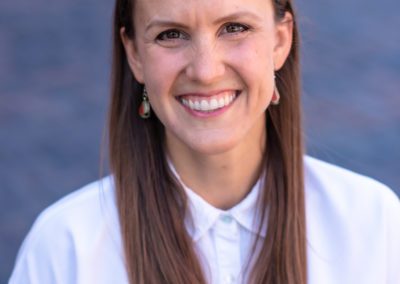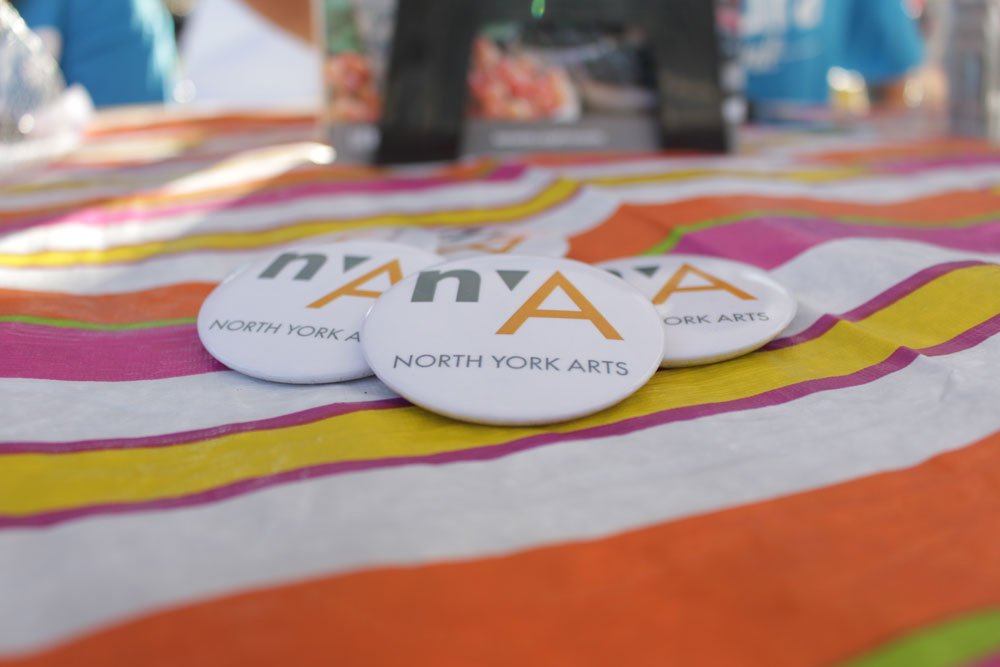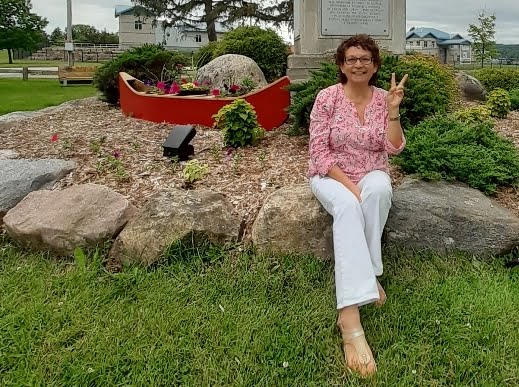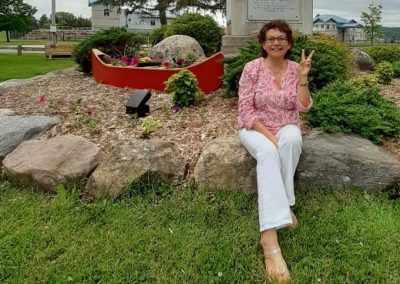%22%20transform%3D%22translate(2.1%202.1)%20scale(4.21875)%22%20fill-opacity%3D%22.5%22%3E%3Cellipse%20fill%3D%22%23603c02%22%20rx%3D%221%22%20ry%3D%221%22%20transform%3D%22rotate(78.5%2044%2099.1)%20scale(61.71823%2087.979)%22%2F%3E%3Cellipse%20fill%3D%22%23fff%22%20rx%3D%221%22%20ry%3D%221%22%20transform%3D%22rotate(-107.3%2062%2067)%20scale(255%2050.87283)%22%2F%3E%3Cellipse%20fill%3D%22%23fffbff%22%20rx%3D%221%22%20ry%3D%221%22%20transform%3D%22matrix(-8.04964%20-34.34855%20248.27345%20-58.18327%20165.2%20145.9)%22%2F%3E%3Cellipse%20fill%3D%22%23ff8757%22%20cx%3D%22147%22%20cy%3D%2295%22%20rx%3D%2263%22%20ry%3D%2240%22%2F%3E%3C%2Fg%3E%3C%2Fsvg%3E)
The Grow North Creative Residency is an initiative by North York Arts to “pass the mic” to artists in our community. Local artists living in North York are given the opportunity to share information, teachings, and their artistic practice with our audience, and engage with the North York Arts community in meaningful ways.
Building a Creative Practice
By Expecting the Unexpected
We’re all born artists, but for most of us, creativity gets buried under the pressure of heavy responsibilities, busy schedules, and rigid social structures. For those of us who are able to make room for our creativity, we still often manage to stifle it through our own expectations. So here are some dos and don’ts to build and sustain a creative practice based on my own experience!
DO
Do expect your creativity to reward you, to create an additional layer of meaning in every part of your life. A tearful hug from an audience member, a homemade cake from a participant, a balloon of happiness expanding within your heart… These are the unexpected gifts your creativity will sprinkle upon you.
DON’T
Don’t expect your creativity to reward you with money and fame. These goals are just a reflection of what society considers ‘successful’. If these are your end goals, there are easier ways to get to them. Our creations sew together the torn fragments of the world. What we create is valuable, even if it doesn’t meet the standard definition of success.
DO
Do expect your creativity to stun and surprise you. Bring down ‘art’ from its pedestal so your creativity can have free reign. Trust in the unknown. Encourage yourself. Your creativity will bloom when you play, experiment and let loose!
DON’T
Don’t expect your creativity to bring you perfection. We are imperfect beings living in an imperfect world. We can only make imperfect things. Be careful of the narrative you tell yourself. If you start creating to achieve perfection instead of joy, your creativity will go into hiding, quietly withdrawing until the pressure lifts off.
DO
Do expect your creativity to want excitement and change. Go to shows, take classes, read books. Reach out to other artists and art organisations, such as NYA! Taking the first step is scary but necessary. Seek knowledge. Build connections.
DON’T
Don’t expect creativity to always be around. Creativity doesn’t like being alone all the time, and it certainly doesn’t like being bored. Pretty much anything other than sitting at home and stewing about its absence will bring it back to you.
And that’s all I’ve got! Creativity is elusive and slippery. Expect too much, and it’ll flee. Let it breathe, and it’ll seep through the cracks of the ordinary in the most wonderful ways. I wish you the best of luck!
–
Tasneem Dairywala is an Artist, Writer and Illustrator. To read more of her writing, sign up for her newsletter at www.tasneemdairywala.com
%22%20transform%3D%22translate(2.1%202.1)%20scale(4.21875)%22%20fill-opacity%3D%22.5%22%3E%3Cellipse%20fill%3D%22%23603c02%22%20rx%3D%221%22%20ry%3D%221%22%20transform%3D%22rotate(78.5%2044%2099.1)%20scale(61.71823%2087.979)%22%2F%3E%3Cellipse%20fill%3D%22%23fff%22%20rx%3D%221%22%20ry%3D%221%22%20transform%3D%22rotate(-107.3%2062%2067)%20scale(255%2050.87283)%22%2F%3E%3Cellipse%20fill%3D%22%23fffbff%22%20rx%3D%221%22%20ry%3D%221%22%20transform%3D%22matrix(-8.04964%20-34.34855%20248.27345%20-58.18327%20165.2%20145.9)%22%2F%3E%3Cellipse%20fill%3D%22%23ff8757%22%20cx%3D%22147%22%20cy%3D%2295%22%20rx%3D%2263%22%20ry%3D%2240%22%2F%3E%3C%2Fg%3E%3C%2Fsvg%3E)
The Grow North Creative Residency is an initiative by North York Arts to “pass the mic” to artists in our community. Local artists living in North York are given the opportunity to share information, teachings, and their artistic practice with our audience, and engage with the North York Arts community in meaningful ways.
Based on: Girl, By Jamaica Kincaid
Wash your brushes immediately and put them to dry hanging upside down; Wash the acrylic ones separately and never mix them with oils; don’t leave your paintings to dry in the hot sun; they’ll cook and crack; wash your palettes as soon as you’re done using them; when buying yourself an apron, be sure that you don’t spend too much money on it, because that way you won’t feel guilty when you spill wax and paint all over; prime your canvases overnight before you paint on them; always eat your food before you start painting; don’t want toxics inside there; don’t sing while you work; don’t socialize so much; don’t eat your meals outside – you’re wasting good money; this is how to build a stretcher; this is how to stretch a canvas on the stretcher you have just built; this is how to use an easel when you’re painting something too large; this is how you smile to a professor you don’t like too much; this is how you smile to a professor you don’t like at all; this is how you smile to a professor you like too much; this is how to sculpt a pot; this is how to sculpt a face; this is how to sculpt a body; this is how you set a work on display; be sure to wash every day; the smell of your paint is better than the smell of your sweat; don’t paint too many flowers – they can make your work boring; don’t throw stones to hear the pattern of sound they make; you waste too much time daydreaming; this is how to knead red clay; this is how to knead white clay; this is how to start up a kiln; this is how to get the maximum amount of work done in the minimum amount of time; this is how to save a painting before it becomes an inconceivable mess; this is how to burn old rags; and that way your room won’t look dirtier than it is already; this is how to control your work; and this is how your grades control you; this is how to love what you do; and if this doesn’t work there are other ways, and if they don’t work, don’t feel too bad about giving up; this is how to make old supplies last; this is how to squeeze out each thumbnail for more ideas and mistakes to make sure your painting turns out looking perfect; but what if I like them imperfect?; you mean to say that after all this, you are going to be the kind of artist who thinks every mark you make is a masterpiece?
%22%20transform%3D%22translate(2.1%202.1)%20scale(4.21875)%22%20fill-opacity%3D%22.5%22%3E%3Cellipse%20fill%3D%22%23603c02%22%20rx%3D%221%22%20ry%3D%221%22%20transform%3D%22rotate(78.5%2044%2099.1)%20scale(61.71823%2087.979)%22%2F%3E%3Cellipse%20fill%3D%22%23fff%22%20rx%3D%221%22%20ry%3D%221%22%20transform%3D%22rotate(-107.3%2062%2067)%20scale(255%2050.87283)%22%2F%3E%3Cellipse%20fill%3D%22%23fffbff%22%20rx%3D%221%22%20ry%3D%221%22%20transform%3D%22matrix(-8.04964%20-34.34855%20248.27345%20-58.18327%20165.2%20145.9)%22%2F%3E%3Cellipse%20fill%3D%22%23ff8757%22%20cx%3D%22147%22%20cy%3D%2295%22%20rx%3D%2263%22%20ry%3D%2240%22%2F%3E%3C%2Fg%3E%3C%2Fsvg%3E)
The Grow North Creative Residency is an initiative by North York Arts to “pass the mic” to artists in our community. Local artists living in North York are given the opportunity to share information, teachings, and their artistic practice with our audience, and engage with the North York Arts community in meaningful ways.
An Interview with Tasneem Dairywala
Can you tell us a bit about yourself?
I am a visual artist and an art educator. I run a non-profit called Art Ignite and we do lots of fun art programs in Flemingdon Park. I’m also on my way to publishing my first children’s book, ‘How to Show Love’ after which, I will be able to change my status from writer to author!
What would you say are the most important parts of building a creative career?
- Continuous learning:
- By learning, I don’t mean acquiring an expensive degree or only learning about art-specific topics. Learn about whatever makes you curious, because it’s crucial to creative growth. Here are some free or low-cost education platforms that I’ve found very useful:
- Gale Institute
- TDSB classes for adults
- Coursera
- City of Toronto: Parks, Forestry and Recreation
- Toronto Public Library
- Building connections:
- Post-COVID, it would be wonderful to start attending art events again and building in-person connections. But in the meantime, there are other ways to remain connected:
- Ask every person you know if they know someone doing the same things as you. I have found this to be the absolute best way to accumulate knowledge and find collaborators.
- Join newsletters. Almost all organizations send them out, and they’re full of opportunities.
- Look at Toronto, Ontario and Canada Art Council’s websites. Search for grants related to the fields you’re interested in, look at who was funded by these grants in the past year, and reach out to them. This is how I came across NYA. They gave me the volunteer experience and mentorship needed to start my own business, and it all started with an email!
- Being brave:
- You’ve already taken the first steps in this journey. Don’t be afraid to move forward. You’re good enough to get grants. You’re good enough to run projects. You’re good enough to do whatever you desire!
What are some of the steps you take to apply for grants?
- Attend grant writing workshops by funders.
- Include keywords from the grant description and evaluation metrics in my application.
- Talk to the grant officer before applying.
- Plan the budget before the project so I know what’s achievable.
- Make sure the support material is high quality.
- If they’re asking for reference letters, make sure the letter is signed, has a header, the correct date, and answers their questions.
- If they’re asking for art work, make sure it’s professionally documented.
- Break up long questions into smaller sections. This helps to ensure that the entire question has been answered and no details have been left out.
- Ask people to proofread. Most people want to help and will say yes!
- Start and submit the applications as early as possible to avoid getting stressed.
- Ask the grant officer for feedback if the application is unsuccessful.
- Pay someone to write the grant if the application is repeatedly unsuccessful. It’s a great learning experience and worth it, especially if the grant writer works on commission.
Are there any grants that are good for emerging artists?
- Art Reach is a great one if you’re under 30.
- Cultural Hotspot is also fantastic, but you have to partner with an organization.
- Toronto Arts Council and Ontario Arts Council applications are not too hard, but each program has a different eligibility criteria. Make sure you meet it before starting the application.
- Inspirit workshop is also great if you have a project idea specific to their mission.
- Microgrants are good starters, but they pop up randomly. Keep an eye on your newsletters!
Is there anything else you would want to tell an emerging artist?
The art world is like a buffet. You want to keep adding projects to your plate even after it’s full. But it’s not sustainable. It’s a long journey so take care of yourself and your mental health. There will always be more opportunities.









